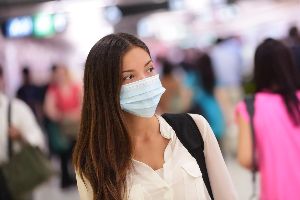
In May 2022, reports of monkeypox infections began to spread throughout Europe. Since then, it's caused a degree of worry amongst individuals worldwide. As society is already facing a pandemic, the concern is understandable. With the guide below, you can better understand what this disease entails and when to see a doctor.
A Brief Guide to Monkeypox
What exactly is monkeypox?
Monkeypox is a virus in the same group as the type that causes smallpox. Because it's a zoologic variety, it can be transmitted from animals to humans and vice versa. Although rare, the disease can spread quickly between groups of individuals. Luckily, it is not usually fatal as it has a 99% survival rate, but those with weakened immune systems can face more severe symptoms.
What are the symptoms of monkeypox?
An individual could develop a rash with sores that affect the palms, face, soles of the feet, groin, and genital regions. The irritated skin patch can also extend inside the mouth, throat, and other orifices, so remain aware of any new developments.
Besides rashes, the most common symptoms of monkeypox include headaches, fever, back pain, fatigue, muscle aches, and swollen lymph nodes. If you experience any of these problems, contact a doctor for further instructions and treatment.
Is there anything I can do to prevent infection?

Prevention methods for monkeypox are similar to those for COVID-19. Protect yourself from contracting the disease by avoiding interactions with infected people or animals.
Since limiting contact can be difficult, maintain ongoing communication with friends and family about their risk levels. You should also wash your hands regularly with soap and water, disinfect high-touch areas, and wear a mask in crowded settings.
What are the treatment options?
There's no specific treatment for killing the monkeypox virus within the body. However, a medical provider could prescribe antivirals used to treat smallpox due to the similarities between the diseases.
Most symptoms will go away about two or three weeks after the body fights off the virus. To help with discomfort, the doctor may recommend medication for pain or fever along with Epsom salt and baking soda baths to clean sores.
If you or a loved one shows signs of monkeypox, visit Walton Family Medicine PC. Proudly serving residents across Monroe, GA, and the surrounding community, this family doctor offers comprehensive medical services, from pediatrics and geriatrics to gynecology and sports medicine. With board-certified physicians, you can rest assured that you'll be correctly diagnosed and treated accordingly. Visit the website to learn more about their team, and call (770) 267-7093 to schedule an appointment today.
About the Business
Have a question? Ask the experts!
Send your question

